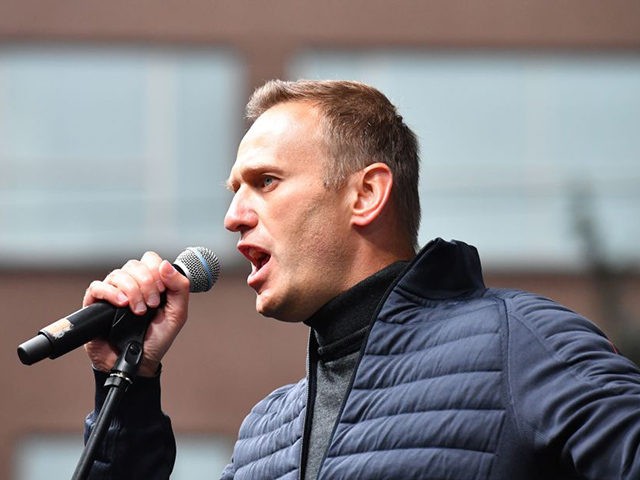Russian investigators on Tuesday launched a criminal investigation into Kremlin critic Alexei Navalny on charges of fraud.
Navalny allegedly used more than $4.8 million of public donations to his various organizations for personal purposes, including overseas travel, according to the Investigative Committee of Russia, which probes serious crimes.
“The Main Investigative Directorate of Russia’s Investigative Committee collected enough information to initiate a criminal case against Alexey Navalny and other people over signs of [fraud on especially large scale],” the committee said in a statement, Russian state news agency TASS reported Tuesday.
The investigators accused Navalny of conspiring with other people to spend nearly $5 million of public donations for personal purposes, including: “purchase of personal property, material values and payment for expenses, including vacations abroad.”
“Therefore, the money collected from the citizens, were embezzled,” the statement read.
The charge of fraud carries a penalty of up to 10 years in prison in Russia.
Navalny is currently convalescing in Germany after being poisoned in August. He has said he will return to Russia once his health recovers.
Navalny fell ill while on a flight from Siberia to Moscow on August 20. He was hospitalized in the Russian city of Omsk before being airlifted to a Berlin hospital on August 22. Navalny’s German doctors, along with various non-Russian observers, have concluded he was poisoned with the nerve agent Novichok. The Kremlin critic has accused Russian President Vladimir Putin of ordering Russia’s Federal Security Service (FSB) to poison him. Moscow has repeatedly denied the allegation.
Navalny on Tuesday described Russia’s latest criminal case against him as “invented by Putin.”
“Well, I immediately said that they will try to put me in jail because I didn’t die [from the poisoning],” he wrote on Twitter.
Russian authorities in February 2014 charged Navalny with fraud and money laundering. He spent nearly a year under house arrest while being investigated on suspicion of embezzling roughly $442,000 before receiving a suspended sentence in December 2014. The European Court of Human Rights ruled last year that Russia violated Navalny’s rights with the 2014 fraud case.
Navalny, 44, is Russia’s most prominent opposition leader. Putin on December 17 dismissed Navalny’s accusation that the president ordered his poisoning as part of a Russian state assassination attempt, claiming the dissident was not “important enough” to be targeted by government authorities.
“If [we] wanted to poison him, [we’d] have finished the job,” Putin said.
“I gave the go-ahead to let him out of the country for treatment,” the Russian leader added.

COMMENTS
Please let us know if you're having issues with commenting.